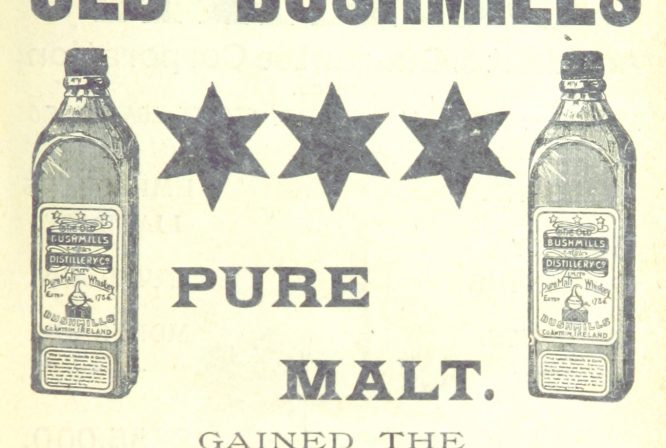All about Gluten-Free Alcohol
If you’re suffering from irritable bowel syndrome or disease, you might wonder if there’s some miraculous way to get away with drinking alcohol. You likely already know to avoid alcohol as it may provoke an attack, but want to find a loophole. Depending on the specific condition, there may be certain types of alcohol that are safe, or at least safer.
Gluten-Free Alcohol
Although the number of people searching for gluten-free products have reached record proportions for a multitude of reasons – sometimes unrelated to their ability to digest gluten – chances are, if you’re asking for gluten-free alcohol, you’re concerned about running into problems with your specific health condition. Thanks to recent advancements in the beer industry and an improved understanding of gluten in alcohol, there are many ways you can continue to drink even with your diagnosis.
A gluten free diet is one of the most well known diets out there. For those with IBS, a few small studies12 have mentioned slight improvement in symptoms when IBS patients adhered to a gluten free diet. On the other side of the coin, a 2018 systematic review and meta-analysis analyzed 9 large studies to find that a gluten-free diet did not clearly help relieve IBS symptoms. They also found the low FODMAP diet to be the most effective diet to reduce IBS symptoms.3
However, if you have celiac disease, the gluten free diet is a given. Avoiding gluten in celiac disease is essential to remain well and symptom free. To continue drinking alcohol on gluten free diet, it would be wise to learn all about gluten-free alcohol.
What is Gluten-Free Alcohol?
Not all alcohol contains gluten. But to understand why some types of alcohol contain gluten and others don’t, even when they use some of the same ingredients, it’s important to learn a little bit about how alcohol gets made.
Do Spirits Have Gluten?
Spirits differ from beer because any gluten products, like barley and wheat, are distilled during the process and so removed them completely from the alcohol, contrary to previous thinking which suggested that trace elements of gluten could remain.
If you’re worried about drinking spirits made from grains, know that it’s impossible for distilled spirits to carry any trace of gluten, unless it’s subject tampering after the distillation process. The bottom line is, if you have a negative reaction after consuming spirits, the cause is not gluten.
Since alcohol can produce different effects for different people, it’s difficult to say why some people can consume spirits with no issues, while others might experience unpleasant reactions. We know now that the distillation process removes all traces of gluten, meaning that you can’t blame gluten for experiencing side effects from gluten-free spirits.

Can Beer Be Gluten-Free?
Beer is a whole different beast from spirits. As one of the oldest types of alcohol known to man, it was first brewed in the early Neolithic (the most ancient known brewery, at 13,000 years old, was recently discovered in the Carmel Mountains of Israel4) and was used to pay the pyramid builders of Egypt. For thousands of years, beer was brewed traditionally from barley, but also other ingredients such as rice and fruits.
Today, most beer labels we see in the marketplace are based on cereal grains, which means either barley or wheat, while some others are based on corn or rice. Other agents are added to these core ingredients to produce a wide variety of beers, ranging from fruits to chocolate.
It’s possible to find gluten-free beer that’s safe to drink. Beware the dangers in trusting certain labels like gluten removed and be vigilant about checking the manufacturing process of your beer of choice.
Is Gluten Removed Alcohol Safe?
The short answer is no. While gluten-removed alcohol may give you that original flavor, it can cause your symptoms to flare up. There’s no guarantee that all traces of gluten once present in the alcohol have disappeared. Still, it’s true that gluten-removed alcohol can reduce the effects of gluten consumption. For some people, it might even be enough to enjoy without causing a reaction. But there’s really no way of knowing until you try, and that involves a certain amount of risk.
Does Barley Include Gluten?
Yes. As a cereal grain, barley contains about 5-8% gluten. If you have health conditions such as celiac disease, barley isn’t safe for you, which includes most beer and malted drinks.
Other Names for Gluten
One of the problems with avoiding gluten is that it comes in many disguises, making it difficult to be certain that your food is completely free of it. The gluten protein5 can be found in any product that’s made of wheat, barley, and rye. It’s a naturally occurring nutrient that acts like as a binder.6
If you see any of the below ingredients, beware:
- Barley
- Binder
- Brewer’s Yeast
- Cereal
- Flour
- Malt
- Rye
- Starch
- Vegetable and plant protein
- Wheat
- Wheat alternatives
Best Alcoholic Drink for an Upset Stomach
In the old days, alcohol was used to pacify patients and reduce pain. Even now, there are certain types of alcohol that can help settle your stomach if tea is not your cup of tea. In fact, there’s an entire group of alcohol dubbed digestifs, which is borrowed from French, meaning digestive.
Traditionally, these drinks were consumed after a hearty meal to aid with digestion. You only need a little bit as these drinks are often very strong and potent with ingredients to help settle your stomach.
Brandy
You may be familiar with brandy as a kind of medicine in period movies about sailors. Indeed, brandy can act as a soothing agent for your upset stomach due to its anti-inflammatory, antibacterial qualities as well as its relaxing effect.
Chartreuse
This colorful drink originally made by monks in the 17th century is packed full of herbs – usually around 130 varieties. It’s a famous digestif in France, and comes in either yellow or green tints. As you might be able to tell from its distillation process, the multitude of herbs result in a drink that’s full of nutrients that can help your digestion.
FAQ: Gluten-free Alcohol
The table below will help discern which types of alcohol are gluten-free. An asterisk indicates there may be exceptions to the rule. In all cases, we’re talking about the type of alcohol in its purest form, and not varieties that include external flavors.
| Alcohol | Gluten-Free? |
|---|---|
| Whisky | Yes* |
| Bourbon | Yes* |
| Vodka | Yes* |
| Gin | Yes* |
| Wine | Yes* |
| Rum | Yes* |
| Tequila | Yes* |
| Liqueur | Yes |
| Cider | Yes |
| Beer | No* |
Is Bourbon Gluten-Free?
Bourbon, by definition, is made of at least 51% corn, which is gluten-free. The rest of the alcohol is made of gluten-containing ingredients, but the distillation process removes all traces of gluten.
Any distilled drink, barring contamination, is inherently gluten-free.
Distillation isn’t analogous to filtering, which could leave traces of gluten behind.
Is Wine Gluten-Free?
Wine is made of grapes, which means most wine is gluten-free. However, some wines may use coloring, flavoring or fining agents7 which may contain very small amounts of gluten. For this reason, it’s best to avoid sweet dessert wines. Another way gluten can make its way into wine is through the barrels used to age the wine.
How does gluten get into oak barrels that then seeps into the wine? In theory, the wheat paste used to seal the inside of some barrels could tamper the wine with gluten. That’s a bit far fetched. But sometimes wheat gluten is used as a fining agent, to remove the cloudiness from wine, and it can leave trace bits of gluten behind. Here’s a detailed and geeky article on the subject.
Gluten-Free Beer
We’ll cover what’s available in gluten-free beer shortly.
What’s the Best Gluten-Free IPA?
…And gluten-free IPAs in particular.
Conclusion
All this to say that alcohol is an interesting topic to study more in-depth so that you can find out which types are the best match your condition. As we become more and more aware of our health and our food, the alcohol we consume is also evolving and better examined. One thing is clear: there are always options, especially with regards to gluten-free alcohol. If you are on a gluten-free diet, it’s worth going the extra mile to ensure your alcohol choices support your gut health.
- https://www.ncbi.nlm.nih.gov/pubmed/21224837/
- https://www.ncbi.nlm.nih.gov/pubmed/23357715/
- https://gastroenterology.acponline.org/archives/2018/08/24/1.htm
- “Ancient Natufians tamed seven species of wild grains for ancient ale, according to new Stanford University study”
- In fact, gluten refers to the collective range of storage proteins, prolamins and glutelins, present in cereals.
- Gluten is borrowed from Latin, where it means glue.
- The removal of latent yeast and other contaminants that would make the wine cloudy.

Comments